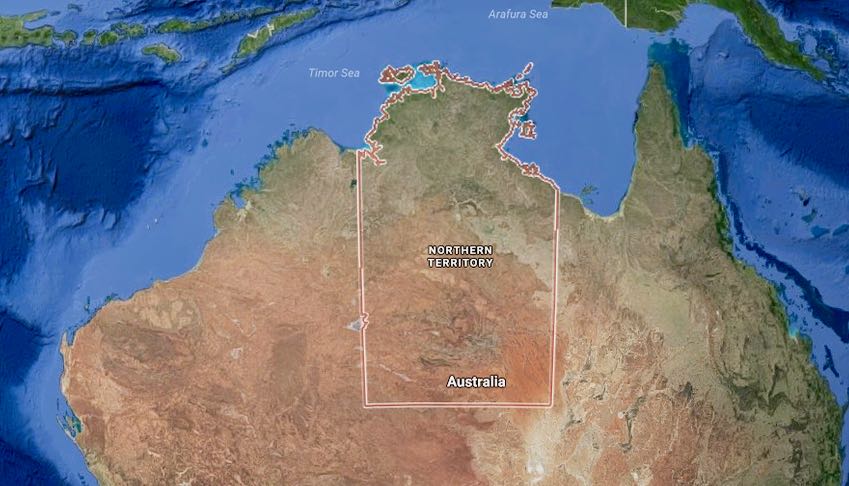(Source: ABC News via Trevor R)
The ABC has defended the axing of its Northern Territory’s long-distance radio service, despite calls from federal representatives to reverse the decision.
This month the broadcaster announced its HF shortwave radio transmitters at Katherine, Tennant Creek and Roe Creek (Alice Springs) would be switched off on January 31, ceasing ABC Radio coverage across the long distance radio transmission platform.
The decision has attracted criticism from cattle station owners, Indigenous ranger groups and fishermen, who argue it was done without community consultation and would deprive people in remote areas of vital emergency warnings.
On Monday Senator Malarndirri McCarthy and Lingiari MP Warren Snowdon met with ABC management in a bid to have the decision reversed.
“The result of that meeting is that they still stand by that decision. We did find the meeting quite disappointing really,” Senator McCarthy told 105.7 ABC Darwin on Monday.
“There really hasn’t been any decency in terms of respect and consideration for the usage of shortwave, which has been a vital service and is a vital service across the Northern Territory.
Cutting NT shortwave service saves $1.2m
On Tuesday ABC spokesman Ian Mannix told 105.7 ABC Darwin the decision to axe shortwave services “will only affect a very, very small amount of people”.
However, he conceded a formal survey had not been done about how many people would be impacted.[…]
It costs $1.2 million to run the shortwave service, which Mr Mannix said would now be reinvested in the ABC’s expansion of its digital radio services in Darwin and Hobart.
ABC unlikely to reinvest in expanded AM service
Listeners to 105.7 ABC Darwin said Mr Mannix underestimated the remote realities of the Territory, a place six times the size of Britain with a population of 240,000.
“There’s about 150 boats in the cyclone season across the Top End of Australia. Every one of those is listening to shortwave,” a North East Arnhem-based fisherman said.
“The local radio is much more comprehensive than what BOM does.”
Mark Crocombe from the Thamarrurr Rangers in Wadeye has previously said his group’s VAST service did not work during cloudy weather, especially during monsoons and cyclones.
He said he had previously found out about cyclone warnings through the ABC shortwave radio, without which he would have had no notice.
On Tuesday Mr Crocombe added that apart from his ongoing emergency weather concerns, the decision would also further isolate people working remotely out bush.
“We’ve used shortwave to listen to the Olympic Games, the AFL grand final, rugby union World Cup. We’ve listened to it all on shortwave.”[…]
This is a reasonably in-depth article and I would encourage you to read it in its entirety at the ABC News website.


I remember listening to a domestic RA broadcast during the early 1970’s. It must have been on the tropical band. I can’t remember which city it came from, but this was about the same time time I could hear commercial ads for Guadalcanal Auto Parts coming from another station on PNG. The RA announcer was female and spiced her speech by popping her mouth with a finger. I wish I was recording SW broadcasts back then.
Is the NT coverage basically a relay of the normal ABC broadcast or is there separate content? So if the infrastructure is already in place wouldn’t it be more cost efficient to maintain the existing transmitter and antenna(s)?
How much can it cost to power a 50kw transmitter?
Yep, the NT shortwave services are relays of the ABC’s local radio service (from Darwin) in the NT. Note that these are separate to Radio Australia, who produce their own content, broadcast from Shepparton (Victoria), and are also being shut down.
In both cases the ABC doesn’t own the infrastructure; the sites, antennas, transmitters etc. are owned, maintained, & operated by Broadcast Australia*. Essentially, the ABC (government-owned) pays BA (privately owned) to transmit ABC services.
(* It’s a long story, but basically most of the transmission facilities of the ABC & several other government organisations were hived off, bundled up as BA, and sold to a merchant bank years ago.)
I cannot understand how they think most people in the remote areas of the NT can access AM services. The same article mentions a population coverage of only 85% which means that 15% miss out.
There is a grand total of 4 medium-wave transmitters in the territory, and none of them are below 700KHz:
http://www.abc.net.au/reception/freq/Frequency-NT.pdf
The lower the frequency the greater the range on AM, I can access AM stations more than 500 kilometres away from me on frequencies under 600KHz with a small AM loop.
I don’t live in the NT myself but I feel for those that do and provide the rest of us who live in cities with nice food to eat.
How on earth is someone living on a cattle station supposed to listen to the ABC while they are working? It’s a bit difficult to strap a satellite dish to your back and power it’s receiver.
$1.2 million (Australian) is less than the median price for a home in San Francisco. The Australian government must be broke.
Digital and computer infrastructure seems very expensive. It must need every dollar it can find! LOL.
I think we SWLers should start a world-wide petition to stop this cutting off of AM/shortwave broadcasts. I’ll bet far more people listen to SW than all the digital services combined. It is madness what they are doing. Most people don’t have radios anymore – they use their smartphones or watch TV.
50 years ago maybe.